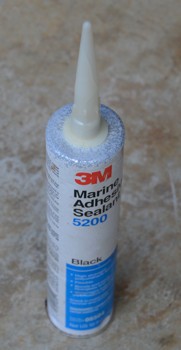
Fine Homebuilding has an excellent article on caulks. Please read Making Sense of Caulks and Sealants. It is very thorough. Check out Sashco’s (www.sashco.com) Big Stretch.
There is one sealant that is not mentioned. That would be marine caulking. I’ve used many types of caulking during my time in the building and renovation trade. I spent fifteen years renovating historic homes in Charleston, SC. I had the opportunity to help a close friend replace old outside steel framed windows with new vinyl casements. The windows were installed in a concrete block home, so the caulking needed to adhere to concrete and vinyl. I had been a boat owner, so I suggested we try a marine caulk. I never used it in home building, but its tenacious adhesion and flexibility led us to give it a go.
During my tenure in the building trades I saw a lot of caulking failure. Joint expansion and contraction causes caulk to split down the center. That failure will eventually lead to water infiltration causing rot. Caulk also fails because the bead is too thin or the wrong type was selected. Research your options and select the best for your application.
Back to the window installation. The marine caulk was very hard to apply. You need Arnold muscles to get it out of the tube. However, it seems to have been worth the effort. When I was in Charleston last year, I visited my friend and checked his windows. That marine caulk looked like we had just applied it. This is 30 years later.
3M 5200 is the best known marine caulk. In reality, it is an adhesive. It has a tensile strength of 700 psi (pounds per square inch). Very strong stuff. Most of the marine caulks are listed as not being compatible with plastics, but the one we used looks as good as new, as do the windows.
Marine caulk is an option to consider. If you want to read more about marine caulk, BoatU.S. has an excellent article on Boat Sealants.
There is a video on the web showing how strong this caulk is. It has been stated – do not plan to take whatever you seal with this caulk apart.
Aside from the marine caulks, the new modified-silicone polymers or the synthetic-rubber caulks deserve your attention. You may not find these caulks at Home Depot or Lowes, but track them down if you want your home repairs to last.
Good luck with your project. If I can be of any assistance, please get in touch.
Update
I recently started using a caulk called QUAD Max. It is not a water based caulk. It can be applied down to 0 degrees F. This seems to be a very good, professional grade caulk. I purchased it at Home Depot, but I’m sure it’s available at other stores. You can read about this caulk here.
The Fuquay-Varina Handyman – www.FVHandyman.com
